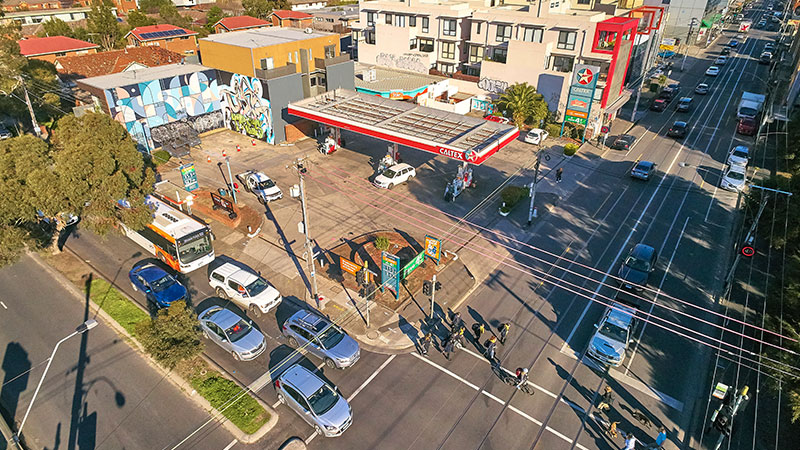Caltex Divests 50 ‘Apartment-Ready’ Sites
Caltex has moved to sell 25 metropolitan freehold petrol stations, in the first tranche of its 50 property divestment strategy.
The service stations, 16 of which are in New South Wales, seven in Victoria, one in WA, and one on the Gold Coast, will be listed in an attempt to reduce costs.
Sydney-based Caltex, which has been lagging in the ASX’s benchmark energy index over the past year, has suffered as a weakness in refining has taken grip, with margins across Asia reaching five-year lows early this year.
The market has seemingly been losing faith in Caltex's retailing profit targets over the past six to 12 months as returns from the rollout of new and revamped stores proved slow to emerge.
The petrol and diesel supplier is going through a top-to-bottom restructuring and last year decided against a more radical demerger or restructuring of the retailing and infrastructure assets that could potentially have unlocked value.
About 500 of its 790 company-owned and operated petrol stations have been identified as delivering “strong returns” and growth, while another 240 are still under review but will remain part of the network.

The move to reposition its assets comes after Caltex reported a 54 per cent drop in benchmark profit for the June half.
The company reduced its guidance for full-year fuels sales from its own production to about 5.5 billion litres, from 5.8 billion litres, because of high oil purchasing costs.
All parts of the business have been hit by the difficult macro-economic conditions said to be arising from the slowing Australian economy, low refining margins combined with a low foreign exchange rate.
Caltex, which has promising to investors to deliver up to $150 million in additional earnings from its convenience retail business by 2024, saw its underlying profit in the convenience retail operations sliding backwards by $35 million in 2018.
Bottom-line net earnings dropped to $155 million from $383 million a year earlier on revenues that edged up 1 per cent to $10.3 billion.
Earnings before interest and tax from fuels and infrastructure fell 38.5 per cent to $193 million, while convenience retail EBIT almost halved to $85 million from $161 million in the first half of 2018.

Amid the tough climate in both retailing and refining Caltex is now taking steps to reduce its cost base by $100 million a year, cashing in a trove of petrol station assets, highly valued by developers and investors in the market.
CBRE investments director Mark Wizel is managing the marketing campaign along with Julian White and Stonebridge director Lincoln Blackledge.
Caltex chief development officer David Bridger confirmed the company's decision.
“These sites are ideal for low to medium-rise apartment development, located in attractive, high demand areas with strong growth opportunities.
“They also possess long-term development prospects which will appeal to a large number of prospective buyers who are looking at delivering a range of different end products into the inner metro markets.”
Caltex will also shift its corporate headquarters from the Sydney CBD to Alexandria, four kilometres to the south, next year as part of its cost-cutting drive. The company has also slashed its capex budget for this year.
Caltex is also proceeding with the shutdown of a crude unit at Lytton to rectify performance issues that have dogged it since a power supply interruption in January.
The shutdown is expected to reduce production by 200 million to 250 million litres, with Caltex putting full-year guidance for output at 5.8 billion litres, down from 6.04 billion last year.












